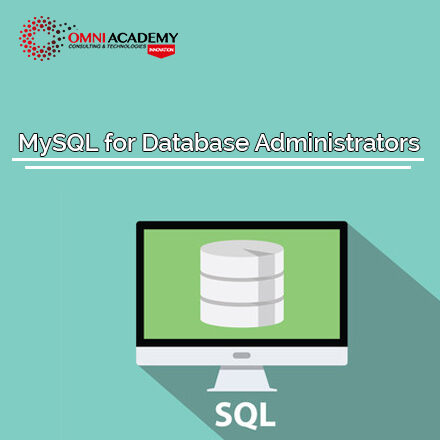Secure Software Coding Practices Training
This course is designed to equip software developers, engineers, and IT professionals with the knowledge and skills required to write secure code and protect applications from vulnerabilities. Participants will learn about the importance of software security, common threats, and practical strategies to mitigate risks throughout the software development lifecycle.
Key Learnings:
- Recognize the potential consequences of insecure software.
- Appreciate the need for integrating security into the software development lifecycle (SDLC).
- Implement Fundamental Security Principles:
- Apply the principles of Confidentiality, Integrity, and Availability (CIA triad).
- Utilize the Principle of Least Privilege and Defense in Depth strategies.
- Identify and prioritize potential threats and vulnerabilities.
- Identify and Mitigate Common Vulnerabilities:
- Understand and prevent vulnerabilities listed in the OWASP Top Ten.
- Implement input validation, secure authentication, data encryption, and secure session management.
- Adopt Secure Coding Practices Across Different Languages:
- Write secure code in C/C++, Java, Python, and JavaScript.
- Address language-specific vulnerabilities and apply best practices..
- Perform Security Testing and Code Reviews:
- Conduct static and dynamic code analysis.
- Integrate security testing into the CI/CD pipeline.
- Perform effective security code reviews using automated and manual techniques.
Course Content:
Module 1: Introduction to Secure Coding
- Overview of Software Security
- Common Security Breaches
- Security in the SDLC
- Introduction to Secure Development Operations (DevSecOps)
Module 2: Fundamental Concepts of Secure Coding
- Security Principles (CIA triad, Principle of Least Privilege, Defense in Depth)
- Threat Modeling (STRIDE, DREAD)
- Risk Assessment and Mitigation Strategies
Module 3: Common Vulnerabilities and Mitigations
- Overview of OWASP Top Ten (Injection, Broken Authentication, etc.)
- Input Validation and Sanitization
- Secure Authentication and Authorization
- Data Encryption and Hashing
- Secure Session Management
- Secure Error Handling
Module 4: Secure Coding Practices for Different Languages
- Secure Coding in C/C++ (Memory Management, Buffer Overflows, Pointer Vulnerabilities)
- Secure Coding in Java (Exception Handling, Secure Serialization, Java Security Manager)
- Secure Coding in Python (Common Pitfalls, Security Libraries)
- Secure Coding in JavaScript (XSS, CSRF, Secure Third-Party Libraries)
- Secure Coding in Web Applications (Cookies and Sessions, Content Security Policy, Secure Headers)
Module 5: Advanced Secure Coding Practices
- Cryptography (Basics, Secure Implementation, Key Management)
- Secure API Development (REST and SOAP APIs, OAuth, OpenID Connect)
- Secure Mobile Application Development (Platform-Specific Security, Secure Storage, Communication)
- Secure Cloud Development (Cloud Services Security, Configuration, Threat Modeling)
Module 6: Security Testing and Code Review
- Static Code Analysis (Tools and Techniques)
- Dynamic Analysis (Penetration Testing, Fuzz Testing)
- Security Code Reviews (Best Practices, Automated Tools)
- Continuous Security Testing (CI/CD Integration, Security Testing Tools)
Module 7: Secure Software Deployment and Maintenance
- Secure Deployment Practices (Configuration Management, Infrastructure as Code)
- Patch Management (Timely Patching, Automated Tools)
- Incident Response (Preparation, Process, Best Practices)
Final Projet
Prerequisites
To ensure participants can fully benefit from the course, the following prerequisites are recommended:
- Basic Programming Knowledge:
- Familiarity with at least one programming language (e.g., C/C++, Java, Python, JavaScript).
- Understanding of Software Development Processes:
- Basic knowledge of the software development lifecycle (SDLC) and version control systems (e.g., Git).
- Fundamental IT Concepts:
- Basic understanding of computer networks, operating systems, and web technologies.
Target Audience
This course is designed for:
- Software Developers and Engineers
- DevOps and DevSecOps Practitioners
- IT Security Professionals
International Student Fees: USD 300$
Job Interview Preparation (Soft Skills Questions & Answers)
- Tough Open-Ended Job Interview Questions
- What to Wear for Best Job Interview Attire
- Job Interview Question- What are You Passionate About?
- How to Prepare for a Job Promotion Interview
Stay connected even when you’re apart
Join our WhatsApp Channel – Get discount offers
500+ Free Certification Exam Practice Question and Answers
Your FREE eLEARNING Courses (Click Here)
Internships, Freelance and Full-Time Work opportunities
Join Internships and Referral Program (click for details)
Work as Freelancer or Full-Time Employee (click for details)
Flexible Class Options
- Week End Classes For Professionals SAT | SUN
- Corporate Group Training Available
- Online Classes – Live Virtual Class (L.V.C), Online Training
Related Courses
Software Testing – ISTQB Certified Tester Professional
Diploma in Software Engineering 1 year
98-361 – Software Development Fundamentals







